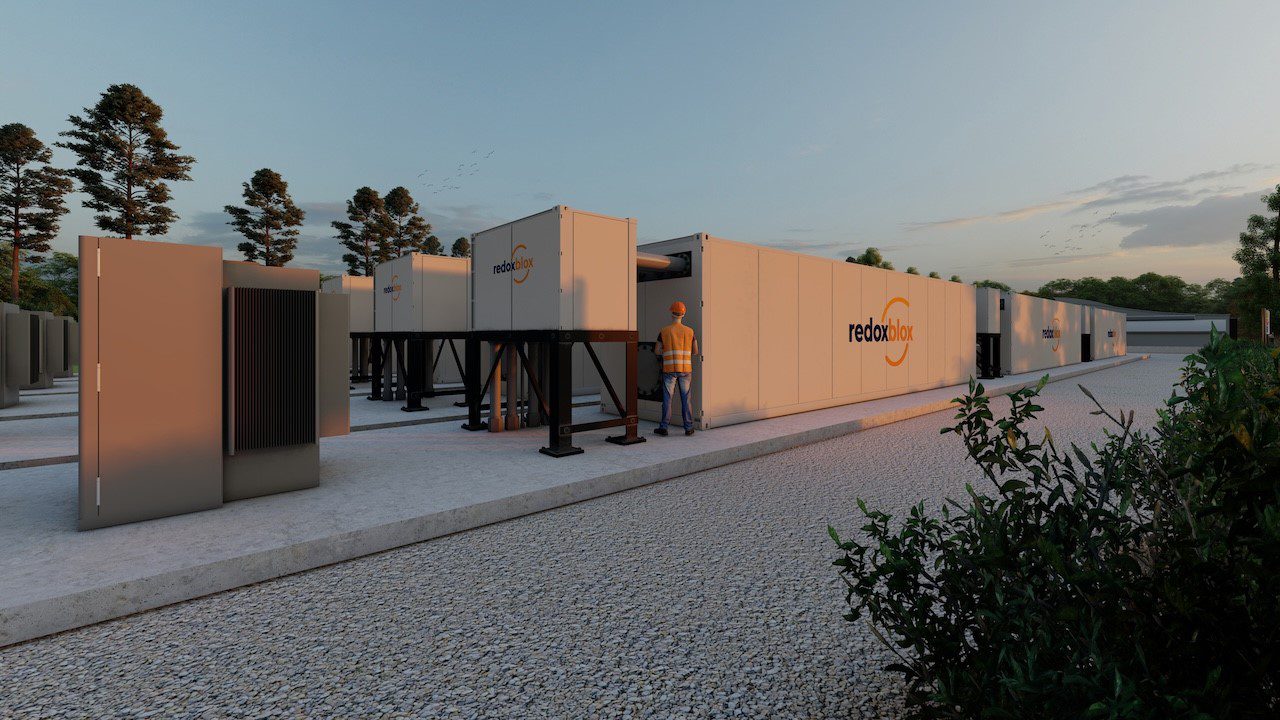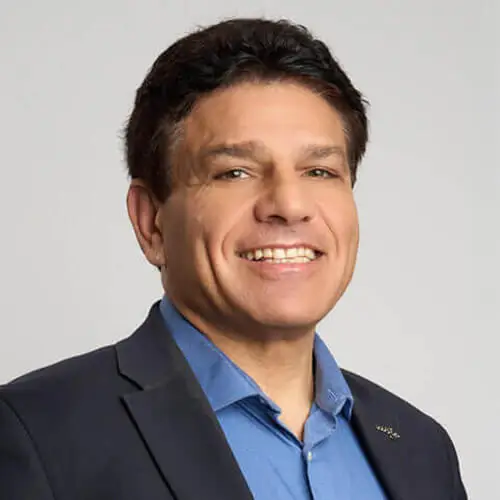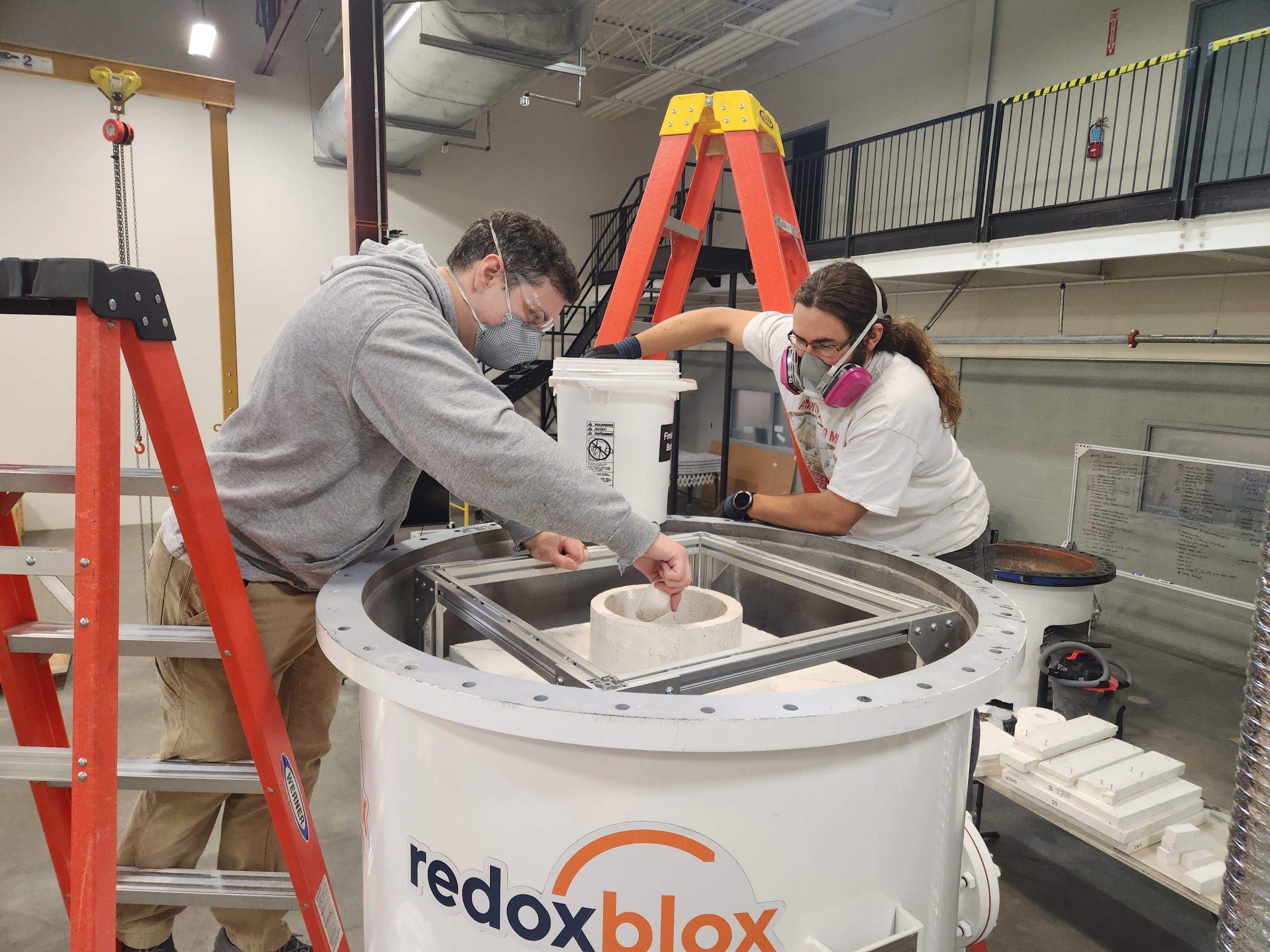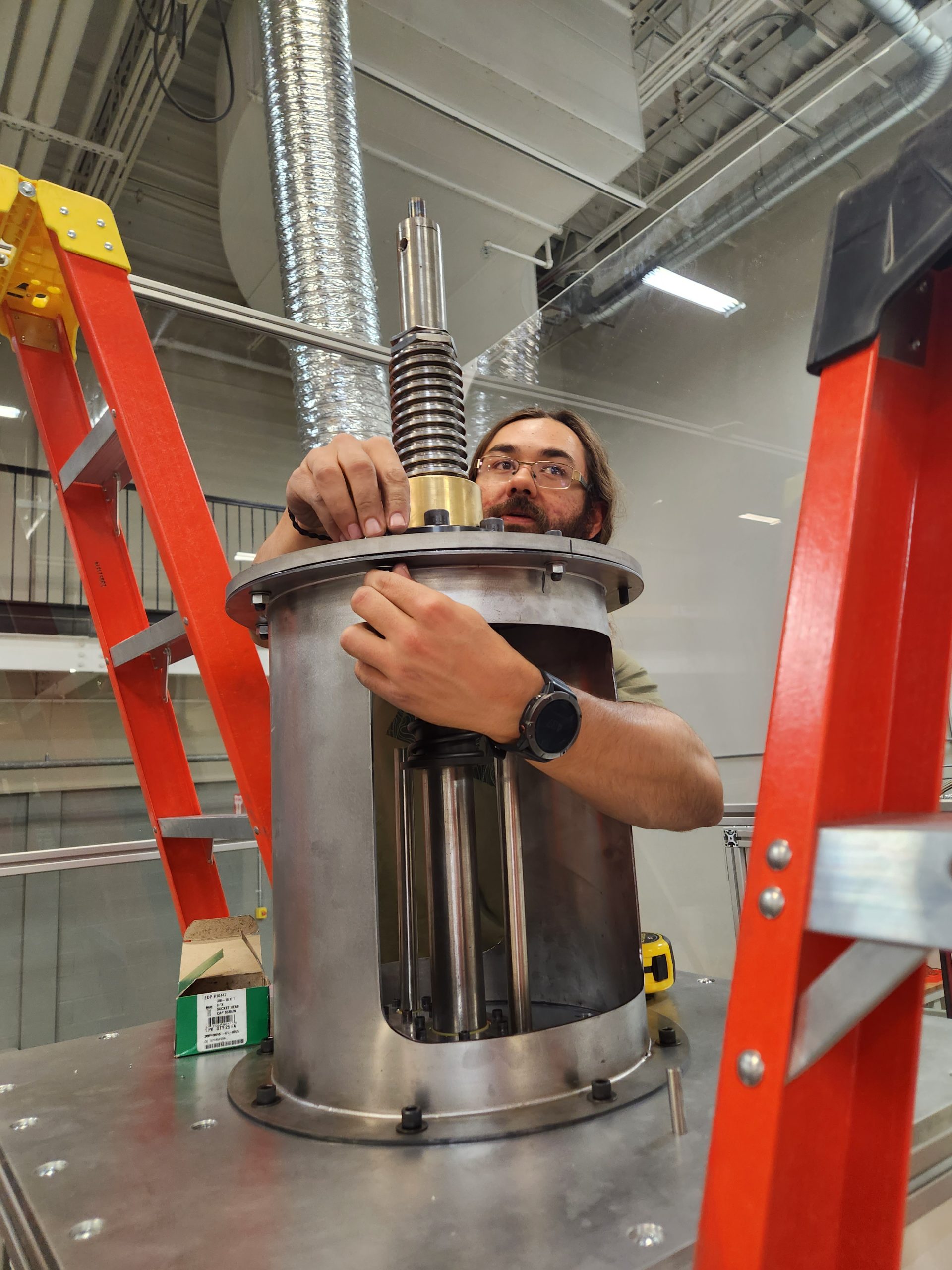
A new, fast-growing company based on Michigan State University (MSU) technology is tackling the urgent need for sustainable energy and grid reliability. RedoxBlox, recently named the 2024 MSU Startup of the Year, is leading the way in energy storage technology, creating groundbreaking solutions for power generation and industrial heat applications.
RedoxBlox’s innovative technology was developed by MSU Research Foundation Professor James F. Klausner, Ph.D., and his team. It harnesses excess renewable electricity or generated heat, storing it efficiently and releasing it as high-temperature air or electricity when needed.

RedoxBlox Co-Founder & Executive Chairman
“To decarbonize is the major driving impetus for our technology and why we exist as a company,” said Klausner, co-founder and executive chairman of RedoxBlox. “We’re targeting industrial heat and grid storage. If we decarbonize both those industries, that addresses about half of all carbon emissions worldwide, so that has a huge impact. But we do not rely on the goodwill of others wanting to decarbonize. We rely on being competitive against natural gas. We rely on a good business proposition to decarbonize.”
Renewable sources such as solar, wind, and hydropower provide clean alternatives to fossil fuels but are often intermittent, presenting a challenge for consistent energy supply. RedoxBlox’s technology addresses this limitation, expanding renewable energy’s potential, enhancing grid stability, and fostering a more resilient energy infrastructure.
The RedoxBlox storage module is a marvel of engineering, using metal oxide-based storage modules that are non-toxic, non-flammable, and fully recyclable. Through both conventional simple heat and a reversible chemical reaction, the system converts electricity to heat and stores it. The storage modules reach temperatures up to 1500°C, emulating the output of a natural gas combustor.
The technology allows for retrofitting existing equipment that burns natural gas, enabling users to switch to renewable energy stored in the RedoxBlox system.
“Decarbonization has to be a natural side effect of utilizing cost-competitive technologies to meet the world’s energy needs,” said RedoxBlox CEO Pasquale Romano.

RedoxBlox CEO
The innovation lies in a reversible redox cycle, a breakthrough researchers have pursued for decades. “People have been working on trying to make redox cycles reversible for half a century, and the team from MSU solved that for the class of materials that we utilize,” Romano said. “It is the next best thing to being able to reverse the process of burning fossil fuels. We like to call it ‘reversible combustion.'”
MSU Technologies Moves Groundbreaking Technology from the Lab to the Marketplace
The metal oxide core material that powers RedoxBlox’s technology was first discovered in 2018 when Klausner was at the University of Florida. Later, with support from MSU’s College of Engineering and government grants, Klausner brought his team to Michigan State University, where they continued developing the technology.
Recognizing the commercial potential of this discovery, the company recruited Romano, an experienced entrepreneur in clean technology, to lead the company’s commercialization in 2024. RedoxBlox benefited from MSU’s entrepreneurial ecosystem, including support from Spartan Innovations, a subsidiary of the MSU Research Foundation, which provided talent connections, campus space, and seed funding.
“We had Ph.D. students and postdocs who worked on the research who eventually became co-founders. The core talent for the technology came out of MSU. This business is also very capital-intensive and could not have been created without significant venture capital funding,” said Klausner.

In 2020, RedoxBlox embarked on a multi-million-dollar seed funding round. Red Cedar Ventures, an early-stage investment subsidiary of the MSU Research Foundation, became a primary investor.
“We were one of the first investors, and we’ve made multiple investments in RedoxBlox over the last few years,” said Jeff Wesley, Executive Director of Ventures at the MSU Research Foundation. “So that says a lot for our support of them and what they’re doing because we don’t do that with everyone. The company has also done a fabulous job of getting non-dilutive capital,” he added, “which is mostly grants on their way to commercialization. You don’t always see that with startups. This is a company that’s on a really good trajectory.”
Now headquartered in San Diego, RedoxBlox is set to make a significant impact in the energy sector.
“The MSU Research Foundation is great to work with,” Klausner said. “Their resources and willingness to support our team has definitely made life easier in terms of getting things started. It’s nice to have a friendly investor-partner in your corner.”

Bringing Renewable Energy Solutions to Market
For its heat applications, RedoxBlox is targeting heavy industries such as chemicals, steel, cement, and food and beverage. It aims to provide storage solutions for the grid by partnering with utility companies and large energy consumers.
“To put things in perspective, an industrial boiler demands about a megawatt of thermal energy,” Klausner explained. “To get into the industrial heat market, we can have a unit the size of 20-megawatt hours to give a good quantity of energy storage. To get into the electric power market, we probably need on the order of gigawatt hours. It takes power plant-size storage to get into that market. Industrial heat is likely to be the first scale market for the technology, with long-duration grid-scale storage applications following.”
Dow Chemical Company is RedoxBlox’s first major customer. As part of a Department of Energy demonstration project, a 20-megawatt-hour unit is slated for installation at Dow’s West Virginia chemical plant.
“One of the biggest challenges is just the time it takes to develop large-scale physical things,” Romano noted. ” Silicon Valley investors are biased to software companies where all you need is a few pizzas and some laptops. What we do is much more capital-intensive and takes much more time to get to a minimum viable product. When you start a company like RedoxBlox, you start a time clock. That really is our biggest challenge, time.”
Despite these challenges, the investment community remains optimistic about RedoxBlox and its mission to drive renewable energy adoption. “When you have venture groups coming in who are interested in a startup in the very early stages, they know it’s a risk, but if they feel the potential reward is higher than the risk, then they’re willing to take it,” said Anne DiSante, Executive Director of MSU Technologies. “We’re really excited about their future.”
This story originally appeared in the 2024 MSU Innovation Center Annual Report — a showcase of groundbreaking ideas, powerful partnerships, and the Spartan spirit of innovation.
The stories highlighted in this report are a testament to the innovators, researchers, and partners who make it all possible. Together, we’re creating a future where ideas move from concept to reality — benefiting Michigan and beyond.
Read the full report HERE.
The MSU Innovation Center is seeking companies and organizations interested in energy storage technologies, renewable energy systems, and industrial decarbonization solutions.
Whether you’re exploring sponsored research, licensing opportunities, or co-developing thermal energy storage systems, grid-scale storage innovations, or reversible redox technologies, we’re ready to collaborate.
Ready to partner with MSU faculty on clean energy research and next-generation sustainable power solutions?
